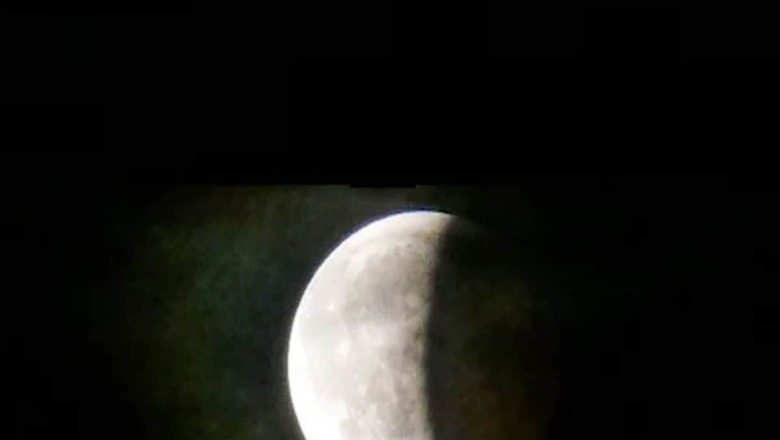
views
Two lunar eclipses are expected in 2024. The initial one will coincide with Phalgun Purnima, which always occurs on a full moon day; unlike solar eclipses, that take place during the new moon. The Sutak period for lunar eclipses begins 9 hours prior, while solar eclipses have a 12-hour early Sutak period. The Sutak period is a nine-hour period before a lunar eclipse. Temples close their doors for worship when the Sutak period commences. During the Sutak period, activities such as eating, cooking, sleeping, worship, and auspicious tasks are forbidden. Special care is advised for pregnant women, children, and the elderly. Dr Krishna Kumar Bhargava from Tirupati provides insights into the timing of the first lunar eclipse of the year, detailing the Sutak period for the same. He also discusses the global visibility of the initial lunar eclipse of the new year.
The initial lunar eclipse of the new year is set for March 25, falling on a Monday, coinciding with the full moon date of Phalgun month. Moonrise on that day is expected at 06:44 pm. This eclipse will be followed by the first solar eclipse of the year on Chaitra Amavasya in April. Notably, the lunar eclipse won’t be visible in India. The penumbral lunar eclipse begins at 10:24 am, with the last touch from the penumbra at 03:01 pm. The penumbral lunar eclipse itself is slated for 12:43 pm, lasting a total of 4 hours and 36 minutes.
The initial lunar eclipse of the year is a penumbral lunar eclipse in India, visible across North and East Asia, Europe, Australia, Africa, North America, South America, Pacific, Atlantic, Arctic, and Antarctica. Beyond its astronomical nature, eclipses hold religious significance. According to mythology, during the churning of the ocean by gods and demons, nectar emerged. Lord Vishnu, as Mohini, gave the nectar to the gods, but a demon consumed it deceitfully. In response, Lord Vishnu, using his Chakra, severed the demon’s throat, creating Rahu and Ketu, who eclipse the Sun and Moon on every Amavasya and Purnima due to the influence of the nectar. Indeed, since neither of the eclipses will be visible in India, the Sutak time is not applicable on these occasions.
















Comments
0 comment